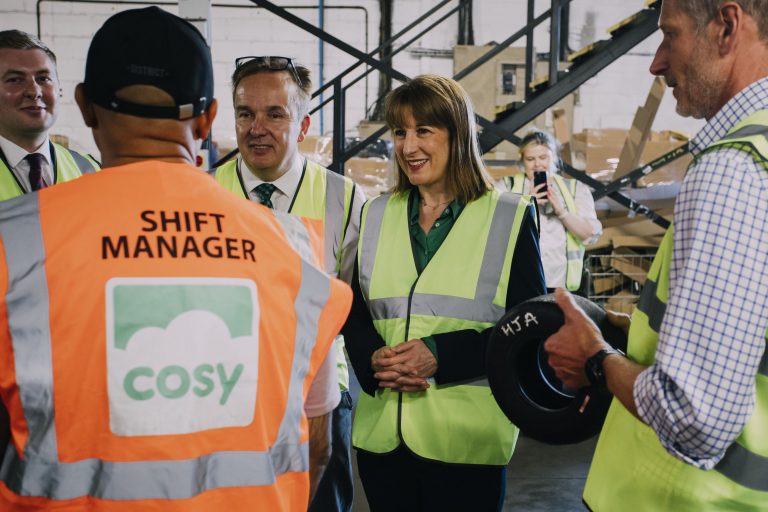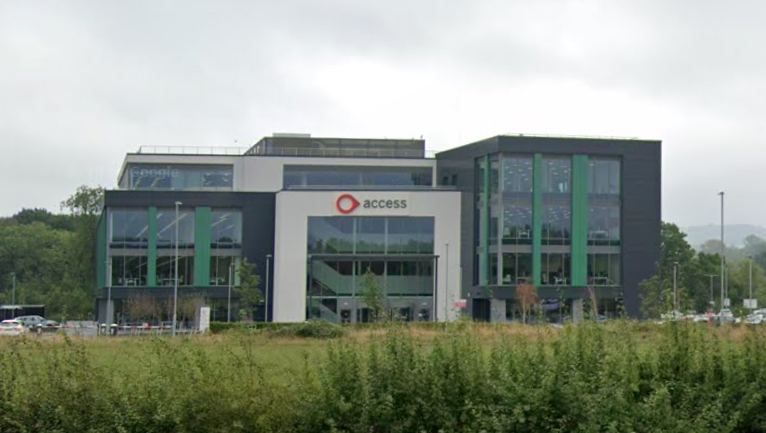Cosy CEO “honoured” as UK Chancellor pays a visit
Nottingham builder avoids jail after gas explosion leaves worker with serious burns
Oberoi Consulting appoints new partnership development director
Charity cycle event raises more than £9,000 for MIND
UK industrial firms to face £685m property tax increase despite energy cost cuts
UK industrial companies are set to face a £685 million increase in property taxes, which could offset the recent reductions in energy bills aimed at improving their competitiveness. A new business rates levy, affecting approximately 4,300 large industrial properties in key sectors such as automotive, aerospace, and chemicals, will take effect in April 2026. This levy is part of the broader business rates revaluation, which aims to fund tax breaks for the high street retail, leisure, and hospitality sectors.
This move follows the government’s recent announcement of energy cost cuts for energy-intensive businesses, including the removal of green levies, which is expected to benefit over 7,000 firms. While some sectors, such as steel and chemicals, will receive additional support through reduced network charges, the new property tax increases are expected to offset these benefits.
Experts argue that the UK’s industrial strategy lacks cohesion, with one hand offering energy savings and the other imposing higher property taxes. The country already has some of the highest property taxes in the developed world, and critics warn that this could undermine the effectiveness of the government’s energy support plans.
The government maintains that its approach will create a fairer system for businesses, but industry leaders are calling for a more unified strategy that addresses the full cost burden faced by industrial firms.
UK launches global talent drive for science and tech innovation
The UK government has unveiled a new initiative aimed at attracting top-tier global researchers and innovators, supported by a £54 million fund. This move comes as part of the country’s broader strategy to enhance its competitive edge in key sectors like science, technology, and engineering.
The Global Talent Taskforce, formed as part of the government’s industrial strategy, is designed to target and attract world-class talent, including researchers, entrepreneurs, and high-calibre professionals. By fostering connections between international networks and the UK’s growing industries, the taskforce aims to strengthen the nation’s innovation capabilities. This initiative is aligned with the government’s ambition to create more skilled jobs and support economic growth.
The £54 million Global Talent Fund will be allocated over the next five years, funding relocation and research costs for researchers and their teams. Leading universities and research institutions will oversee the fund’s distribution, ensuring that the most suitable candidates are selected to contribute to strategic UK industries. In addition, new fast-track research grant routes, backed by organisations like the Royal Society and the Royal Academy of Engineering, will help attract international talent in AI and green technology.
This combined effort demonstrates the UK’s determination to remain a global leader in innovation, with over £115 million of funding dedicated to recruiting the world’s brightest minds.
Acquisition sees The Access Group bolster HR portfolio
Guilty plea for Mansfield director involved in £1m investor fraud scheme
20-year collaboration to bolster fusion energy skills in East Midlands
Nominate exceptional developers for the East Midlands Bricks Awards 2025
 Winners will be revealed at a glittering awards ceremony on Thursday 2nd October, at the Trent Bridge Cricket Ground (4:30pm – 7:30pm) – an evening also offering an opportunity to establish new connections with property and construction professionals from across the region, and hear from keynote speaker Councillor Nadine Peatfield – Leader of Derby City Council, Cabinet Member for City Centre, Regeneration, Strategy and Policy, and Deputy Mayor of the East Midlands.
Other award categories open for entry include: Most Active Agent, Commercial Development of the Year, Responsible Business of the Year, Residential Development of the Year, Contractor of the Year, Deal of the Year, Architects of the Year, Excellence in Design, and Sustainable Development of the Year. All entry forms can be accessed here.
The Overall Winner award will also be presented at the event. This award cannot be entered, with the winner selected from those nominated for the event’s other awards. The Overall Winner of the East Midlands Bricks Awards 2025 will also receive a grand prize of a year of marketing/publicity worth £20,000, with the opportunity to split or gift the marketing to a charity of your choice.
Winners will be revealed at a glittering awards ceremony on Thursday 2nd October, at the Trent Bridge Cricket Ground (4:30pm – 7:30pm) – an evening also offering an opportunity to establish new connections with property and construction professionals from across the region, and hear from keynote speaker Councillor Nadine Peatfield – Leader of Derby City Council, Cabinet Member for City Centre, Regeneration, Strategy and Policy, and Deputy Mayor of the East Midlands.
Other award categories open for entry include: Most Active Agent, Commercial Development of the Year, Responsible Business of the Year, Residential Development of the Year, Contractor of the Year, Deal of the Year, Architects of the Year, Excellence in Design, and Sustainable Development of the Year. All entry forms can be accessed here.
The Overall Winner award will also be presented at the event. This award cannot be entered, with the winner selected from those nominated for the event’s other awards. The Overall Winner of the East Midlands Bricks Awards 2025 will also receive a grand prize of a year of marketing/publicity worth £20,000, with the opportunity to split or gift the marketing to a charity of your choice.
The East Midlands Bricks Awards 2025
What: The East Midlands Bricks Awards 2025 When: Thursday 2nd October (4.30pm – 7.30pm) Where: Derek Randall Suite, Trent Bridge Cricket Ground, Nottingham Keynote speaker: Councillor Nadine Peatfield – Leader of Derby City Council, Cabinet Member for City Centre, Regeneration, Strategy and Policy, and Deputy Mayor of the East Midlands Tickets: Available here Dress code: Standard business attire Thanks to our sponsors:








To be held at:












